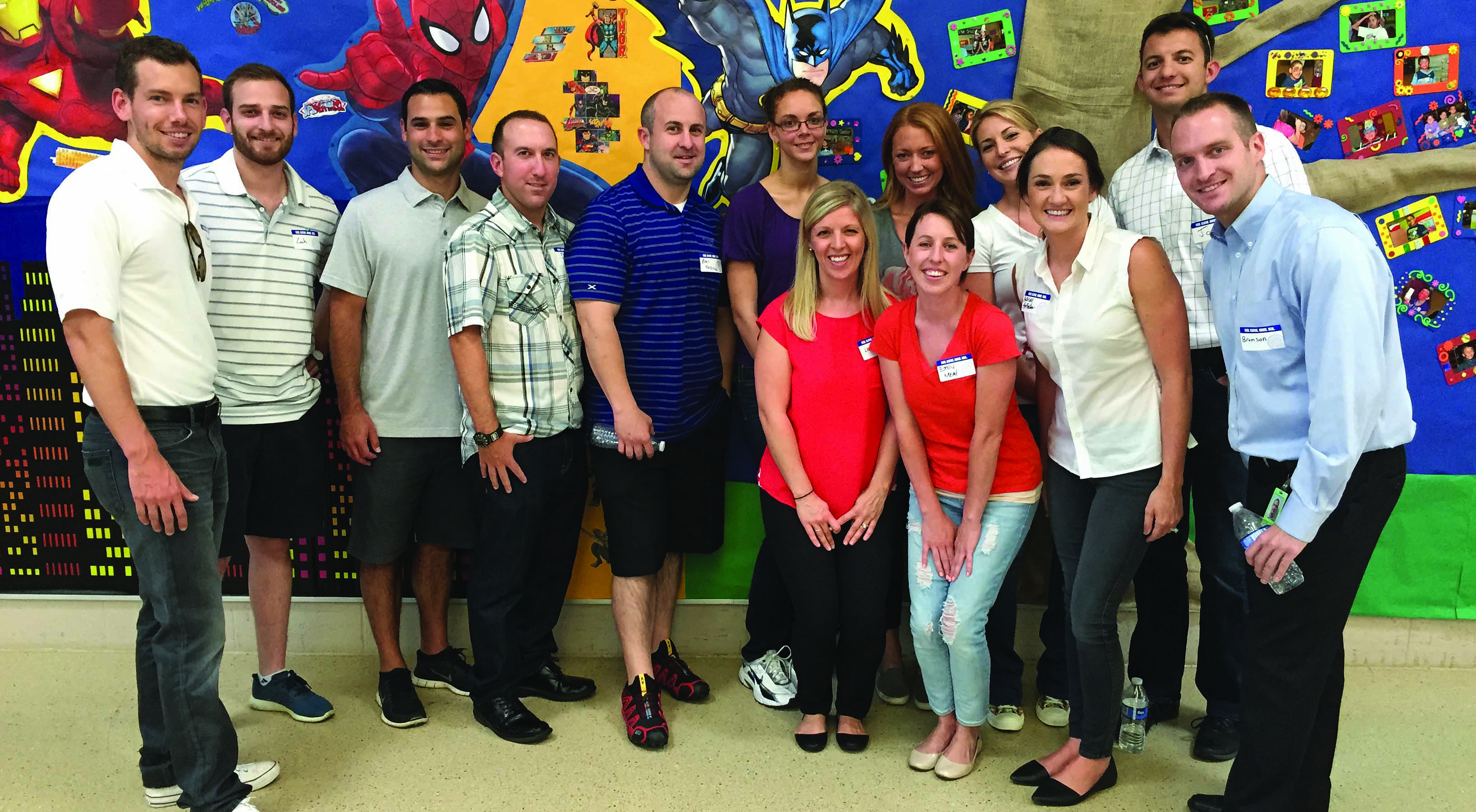Last year, NAIOP Arizona received national attention for its Developing Leaders program.
“It’s a great program, because you overcome the lack of common ground with more seasoned professionals,” says Robert Guerena, vice president of development at Seefried Properties and 2015 chair of the developing leaders program. “You don’t know the right questions to ask a 30- to 40-year veteran.”
The purpose of the mentorship program is to find a common ground for the two experience levels.
NAIOP Arizona’s young leaders program has about 230 members — 30 percent of its membership — who are under the age of 35 and active in the developing leaders program, which was launched in 2009 by former Chapter Chairman Megan Creecy-Herman. Over the years, the group has hosted events meant to bring together the young and experienced, including “Rookies and Rock Stars,” which allowed 50 under-35 members to invite someone with more than 10 years of experience to a black tie affair for free.
Now, the group is taking an even more selective step with its 10-month mentorship program. Every year, the developing leaders committee selects 12 applicants to take the role of protege with 12 mentors. Last year, the group tested a new program that pitted three teams of four against one another in case studies of real, developable sites around Phoenix.
“The biggest challenge was creating a curriculum captivating of the proteges but also understanding they have full- time jobs to commit to,” says Guerena.
John DiVall, a mentor whose team won last year’s competition, has worked closely with expanding the mentorship program and formalizing NAIOP’s Masters of Real Estate Development (MRED) program with ASU.
“I wasn’t so much surprised as impressed with how sharp some of the young people are in our industry,” says DiVall, senior vice president and city manager for Liberty Property Trust’s Arizona region.
DiVall and three other mentors guided their four proteges through the process of developing a building from start to finish. He says they spent a good amount of time together and was blown away by how coachable all of the proteges were.
“I could see all of them working for me,” he says.
Jenna Borcherding, director of business development at Jokake, has been the chair of the mentorship program. She says seeing the first class graduate gave her energy to take the helm for the last four years.
“We had a protege from two years ago who (still) has a mentor two and a half years later,” Borcherding says. “They’re still meeting. (Proteges and mentors will) get their spouses together and build relationships.”
“We need to think about the future,” DiVall adds. “(We need to) think about the kids with bright resumes who get their masters from ASU and we want them to stay. Reaching out to them to more formally meet people and intern for them is a great start to that. It’s the same thought with the mentorship program. They’re already here, but it increases the chance of them staying in Arizona. We’re still such a young market and state.”




